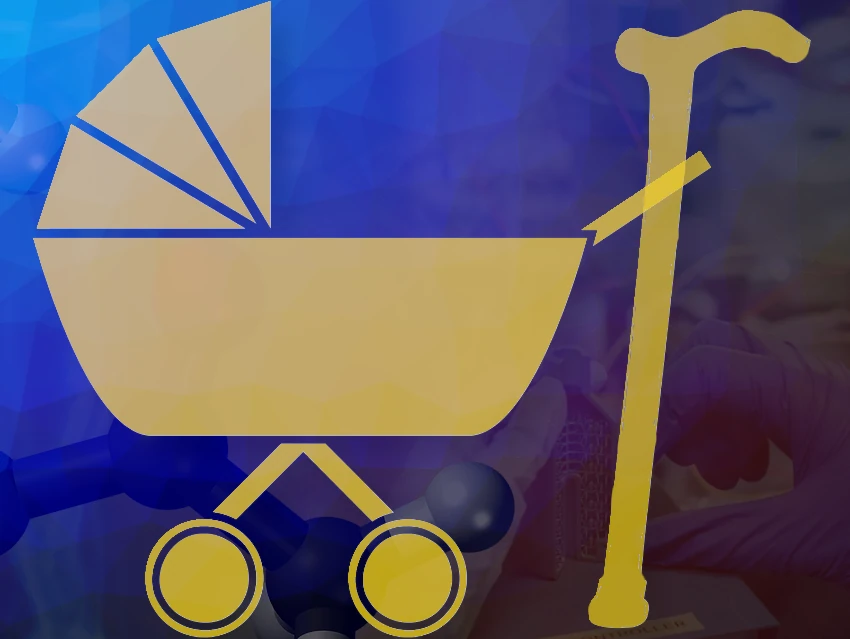1 Introduction
This article provides insights from personal experiences about care responsibilities as well as suggestions for institutional approaches to help improve the work–life balance in academia. We, the contributors of this article, have chosen to pursue an academic career and are now in a position (and at the same time have a  responsibility) to shape the academic workplaces of the future in ways that promotes flexibility or greater flexibility regarding care responsibilities. We firmly believe that the best science is achieved when diverse viewpoints and life experiences are explicitly taken into account along with the different approaches that arise from them.
responsibility) to shape the academic workplaces of the future in ways that promotes flexibility or greater flexibility regarding care responsibilities. We firmly believe that the best science is achieved when diverse viewpoints and life experiences are explicitly taken into account along with the different approaches that arise from them.
This article puts forward suggestions on how a framework can be provided in institutions to support flexibility for academics to choose what best suits most of their needs in various lifestyle decisions. This framework can ensure that researchers with care responsibilities are not excluded due to their social situation, so that they can enhance their institution’s excellence in both research and teaching.
While traditionally one partner (nearly always the woman) remained at home to provide care for the children, thereby renouncing an (academic) career completely, these traditional roles are changing continuously [1]. These changes require us to move away from the status quo and call for essential adaptations, not only by employers, but also by funding agencies, institutions as a whole, partners, co-parents, and the entire environment. This breadth means there is no ”one size fits all” solution. This was convincingly described in a recent, beautifully composed article on Allison McKendrick, chair of Optometry Research, University of Western Australia and Lions Eye Institute [2].
2 Factors Contributing to A Successful Academic Career
As academics, we like to define the realm of possibilities and the given limitations as boundary conditions. In the context of this article, we adapt this approach to describe family responsibilities while working as an academic. In the following, we describe factors that we believe might contribute to the successful pursuit of an academic career.
2.1 Social Security Conditions
These can vary enormously across different countries and institutions. Government support, including financial support and time allowances for the birthing and non-birthing partners and allowed time for parental leave also vary significantly. Moreover, there is no consistency in the availability of childcare facilities, or with regard to the quality and cost thereof.
While many governments have recognised that a productive workforce requires the facilitation of caring for family members, access to childcare, long-term care or care of the elderly for a full- time working individual is rarely if ever completely satisfied.
time working individual is rarely if ever completely satisfied.
Additionally, (tuition) fees for children’s and partners’ education often arise when important life decisions are made, such as taking on a position abroad. If employment offers and scholarship funds were to take these aspects routinely into account, opportunities would become significantly more attractive.
2.2 Further Financial Constraints
The average income for academics is generally below that of peers with a comparable professional education who work in industry [3]. Especially during graduate studies and postdoctoral research, income is low and often coincides with an important time in life when many people are thinking about starting a family.
Additionally, many Ph.D. and postdoctoral positions are covered by scholarships or fellowships, which might have tax benefits for the receiving student, but often also makes them ineligible for government support for parental leave.
This scenario leads many researchers to decide to postpone or reject having children at all, contributing to falling birth rates in many developed countries [4]. While this is obviously a personal decision by each individual, the financial constraints on graduate and postgraduate students often have undue influence on this critical decision-making process. Therefore, financial conditions must be improved for such individuals to enable care work during any stage of their life without major handicaps regarding their career choices.
2.3 Childcare
Many people with much potential in research and teaching drop out of academia when they have children, either because they do not have the necessary support or are not able to finance childcare and extra costs arising from care responsibilities. Institutionalised solutions for daycare, including educational activities, is of pivotal importance for future generations.
 The availability of high-quality on-site care facilities would free the productivity capacities of academics with care responsibilities, but also ensure fair access to these for children from less-advantaged backgrounds. In addition, foundations and institutions should consider offering specific awards or scholarships that cover care costs, such as a ”daycare scholarship” to help out young parents, or ”parental leave” scholarships that support the wish to take time off after birth, without compromising research funds that are often linked to a tight timeline.
The availability of high-quality on-site care facilities would free the productivity capacities of academics with care responsibilities, but also ensure fair access to these for children from less-advantaged backgrounds. In addition, foundations and institutions should consider offering specific awards or scholarships that cover care costs, such as a ”daycare scholarship” to help out young parents, or ”parental leave” scholarships that support the wish to take time off after birth, without compromising research funds that are often linked to a tight timeline.
Different formats already exist, an example that helps academics attend events and conferences is the RSC carer’s bursary in the UK, while in Germany the Christiane-Nüsslein-Vollhard foundation supports assistance with household chores and for additional childcare.
3 Risks in Experimental Work
Experimental work in disciplines that expose the experimental scientist to certain risks, most notably in chemistry, followed by biomedical sciences, biology, engineering, and physics.
In general, laboratory safety has improved significantly over the years. Riskassessments and increased attention to hazards and risk mitigation have become a formal integral part of procedures, providing a framework of confidence and safety for both employers and employees. However, the effects of many chemicals on pregnant women or on reproductive health in general are often unknown, making it difficult to fully eliminate potential risks [5].
3.1 Project Progress
This is often affected or slowed down if employees need to take time off to care for themselves (for example, because of personal health issues) or others. Not only does this adversely affect the individual, it also has an impact on their direct and indirect environment, such as supervisors, co-workers, students and other stakeholders. Interests do not always coincide; sometimes the individual might want to keep and continue on a particular project, while the project owner might favour progress and prefer to reassign it, which might be detrimental to project outcomes.
In general, these conflicts of interest can only be resolved through early two-way dialogue, but often require mediation from a third party. It is important not to assume that the scientist in training is requesting the maximum time off, but rather seek communication early on, so that all parties can come to an agreed satisfying solution.
3.2 Academic Project Funding
Some modern funding already offers flexibility to account for personal circumstances, respecting the fact that research personnel are human beings, not only scientists. Many funders are now flexible to adapt duration or funding mode to accommodate for certain situations in the life of their researchers.
 The beauty of academic work is that it is not only flexible in terms of work hours, but many projects also leave room regarding the direction in which a project is shaped. As an example, diverting the project work to writing a comprehensive review article or supporting proposal writing, could be a good option for a graduate student who has to take time off from lab work (for example, during pregnancy, breast feeding, or physical impairment).
The beauty of academic work is that it is not only flexible in terms of work hours, but many projects also leave room regarding the direction in which a project is shaped. As an example, diverting the project work to writing a comprehensive review article or supporting proposal writing, could be a good option for a graduate student who has to take time off from lab work (for example, during pregnancy, breast feeding, or physical impairment).
Furthermore, as the vast majority of research is performed in teams, this allows task sharing, for example, having a technician, intern or undergraduate student take over lab work to free up the time of the graduate or postdoctoral student for detailed analysis of data and write-up requirements.
3.3 Further Boundary Conditions
An especially interesting aspect; we consider a boundary condition is the “non-finite dimension of academic work” [6]. While this aspect is clearly part of the enjoyable, opportunistic nature of the job, the expectations in this type of position are also extremely high.
The academic environment depends on intrinsically motivated high achievers, who in addition to developing innovative research and teaching, envision other opportunities and take on additional tasks to “go the extra mile”. Examples often include organizing a conference, setting up an outreach project, implementing an academic exchange, producing specialized artwork, and a variety of other creative forms. Less-defined, but nonetheless important are “unwritten rules” that determine many decisions in academic environments, for example, certain mobility requirements or building extended international networks.
4 Anecdotal Narratives
As mentioned earlier, it is important to identify and act on what works for each individual, as each life situation is so different from another. Moreover, our priorities and characters vary, so it is important to view this topic with compassion and open mindedness.
4.1 A Good Moment to Have a Child
A few years ago, a brilliant, female student asked when “a good moment to have a child” would be—a challenging question to which the most honest answer is probably “never”, not only in academia, but this often applies to industry careers as well.
The only good answer that came to my mind was: after starting in a place, make your employer note your value, ideally get promoted, and ensure continued support to make sure interesting tasks will wait for you following re-incorporation after a care period. Also, be transparent and fair to the employer at all times.
4.2 Society’s Exectations
 Society’s expectation about being a “good” mum/parent are often antiquated and designed to fit stereotypes, irrespective of the well-being of child and mother.
Society’s expectation about being a “good” mum/parent are often antiquated and designed to fit stereotypes, irrespective of the well-being of child and mother.
To underpin this, we’d like to quote the view of a new mother: ”[child name] is doing well in the nursery, sometimes he doesn’t want to leave …” and shockingly, she added ”Sometimes I am a bit worried about what the staff thinks of us, if our baby does not want to go home …”.
4.3 Caring For a Close Family Member (Abroad)
Increasingly we encounter students or co-workers from different countries and continents. It is often heartbreaking when a close family member falls ill and the decision whether to prioritise research progress or being at their side needs to be taken. Even though this is a very personal decision, it remains even more essential that options are available and that every individual is allowed the freedom to decide for themselves, whether to compartmentalise and immerse themselves in work or to take a break and prioritise care.
5 Lessons Learnt From Undertaking Care Responsibilities Along a Scientific Journey
The following statements on the experience of one of the authors on how to be a young mother and a Ph.D. student at the same time and what VM would do again, are based solely on the author’s experience and are by no means meant to give guidelines or suggestions to others.
5.1 What I Would Do Again
What I would do again: Being able to share care responsibilities with a partner is a huge benefit. I was privileged in the sense that my partner was willing to go 50/50 on childcare responsibilities from day 1. We both decided to work 50% during the first year of the life of our son, working mostly half days switching around noon.
This gave me the opportunity to breastfeed for as long as I wished to, and to schedule my experimental work in the mornings, while replying to emails, writing papers and analysing data in the afternoon from home. Of course, progress was slower than working full-time, but it was the correct compromise for us, so that both of us could move forward in our own career journeys.
We also developed a previously unknown efficiency in our time management. There are lots of things we did not spend time on anymore. I might have seemed not very social at times, but I still aimed to make time for meaningful conversations, although often cutting small talk short during coffee breaks to return to work quickly.
5.2 What I Would Not Do Again
What I wouldn’t do again: One of the decisions I regret was committing to giving a talk at an Innovative Technology Conference five weeks after my due date, which seemed reasonable to me at the time. Because I gave birth almost two weeks after the due date, my son was barely three weeks old when I had to drive several hours to the conference venue for the talk.
Everything went fairly well, but my baby and I were extremely stressed, as we did not have any sleep or feeding rhythm during that time. With hindsight I wish I had declined this opportunity for the sake of my health and the level of stress caused by this task.
I made many decisions along the way that I regret now, and wish I would have handled them differently. These are individual anecdotal experiences that we aim to share for the sake of showing what is possible, and that there are so many different solutions out there to improve these situations.
6 Recommendations for Institutions
There is still a long road ahead for us with many twists and turns, before institutions and research groups alike can reach a point where we can communicate openly about challenges, and desired approaches, without compromising career options. Institutions should take positive steps to provide flexible frameworks. An essential is to offer possible arrangements such as part-time work. This allows academics to focus exclusively on experiments while at work and to meet care responsibilities at the same time.
For students in study programs, it would be highly beneficial if programs also offered part-time studies in which the student can study at their own pace, for whatever reason it might be (clear examples being care responsibilities of children, elderly, mental or physical issues).
Institutional administration needs to be able to react expeditiously to make changes in work contracts. Several months of lead time are not helpful in this context. It would be advantageous if the academic is offered a way to stay in touch and keep up to date with the team, for example, by online or hybrid team meetings.
 Addressing funding agencies, foundations and institutions, we need to expand the (often poor or even non-existent) infrastructure that offers support to researchers with care responsibilities. This could include daycare scholarships (such as securing a childcare spot), support for babysitter and household costs (yes, children do create extra laundry and dishes!), or covering tuition fees for international schools during studies or secondments abroad. Additionally, assisting students in applying for funding to support their studies and family needs, and facilitating their continued contact with projects and teammates while on leave, are also important measures.
Addressing funding agencies, foundations and institutions, we need to expand the (often poor or even non-existent) infrastructure that offers support to researchers with care responsibilities. This could include daycare scholarships (such as securing a childcare spot), support for babysitter and household costs (yes, children do create extra laundry and dishes!), or covering tuition fees for international schools during studies or secondments abroad. Additionally, assisting students in applying for funding to support their studies and family needs, and facilitating their continued contact with projects and teammates while on leave, are also important measures.
Openness of supervisors or line managers in adjusting the project work depending on care responsibilities is highly recommended. Offering temporary shifts of the work focus, such as proposal writing, as well as designing comprehensive review articles or new coursework adds flexibility.
7 Conclusions
All things considered, a job in academia is an immense privilege and can by definition not be suitable for everyone. It is a privilege to follow one’s curiosity in a research setting, often facilitated by funds from taxpayers or charities. Performance on a day-to-day basis relies primarily on the personal ambitions of the academic. The academic environment provides an amazing opportunity to follow a self-driven, independent career with diversified tasks and, therefore, by nature, a flexible and adaptive work environment. On the other hand, performance is non-negotiable, and a must in academia, where a constant drive for innovations and inventions is the principal purpose.
This article has attempted to emphasise that there is not a one-size-fits-all solution for tackling care responsibilities in academia, but that the option for flexibility is crucial to enable people to perform to the best of their abilities in striving to achieve research excellence, irrespective of their personal circumstances. Thus, we encourage institutions to take carefully considered concrete steps to facilitate a better compatibility between care responsibilities and a successful career in academia. This is clearly possible, especially if future generations of academics receive good understanding and support, because at the end of the day the future of our planet depends on their success.
References
[1] Helen Sweeting, Abita Bhaskar, Michaela Benzeval, Frank Popham, Kate Hunt, Changing gender roles and attitudes and their implications for wellbeing around the new millennium, Social psychiatry and psychiatric epidemiology 2014, 49, 791–809. https://doi.org/10.1007/s00127-013-0730-y
[2] Vivienne Raper, When it comes to having a family and an academic career, find what works for you, Science 2017. https://doi.org/10.1126/science.caredit.aaq1545
[3] Maya Denton, Maura Borrego, David B. Knight, U.S. Postdoctoral Careers in Life Sciences, Physical Sciences and Engineering: Government, Industry, and Academia, PLoS One 2022, 17.2, e0263185. https://doi.org/10.1371/journal.pone.0263185
[4] Namkee Ahn, Pedro Mira, A note on the changing relationship between fertility and female employment rates in developed countries, Journal of Population Economics 2002, 15.4, 667–682. https://doi.org/10.1007/s001480100078
[5] Catherine P. McGeough, Sarah Jane Mear, Timothy F. Jamison, A Call for Increased Focus on Reproductive Health within Lab Safety Culture, Journal of the American Chemical Society 2021, 143.32, 12422–12427. https://doi.org/10.1021/jacs.1c03725
[6] Marie-Pierre Moreau, Charlotte Kerner, Care in academia: An exploration of student parents’ experiences, British Journal of Sociology of Education 2015, 36.2, 215–233. https://doi.org/10.1080/01425692.2013.814533
Also of Interest

Stories about obtaining a Ph.D. in a foreign country

Does sustainability affect the skills employers are looking for? How can employees demonstrate these skills, especially if their research isn’t related to sustainability?




